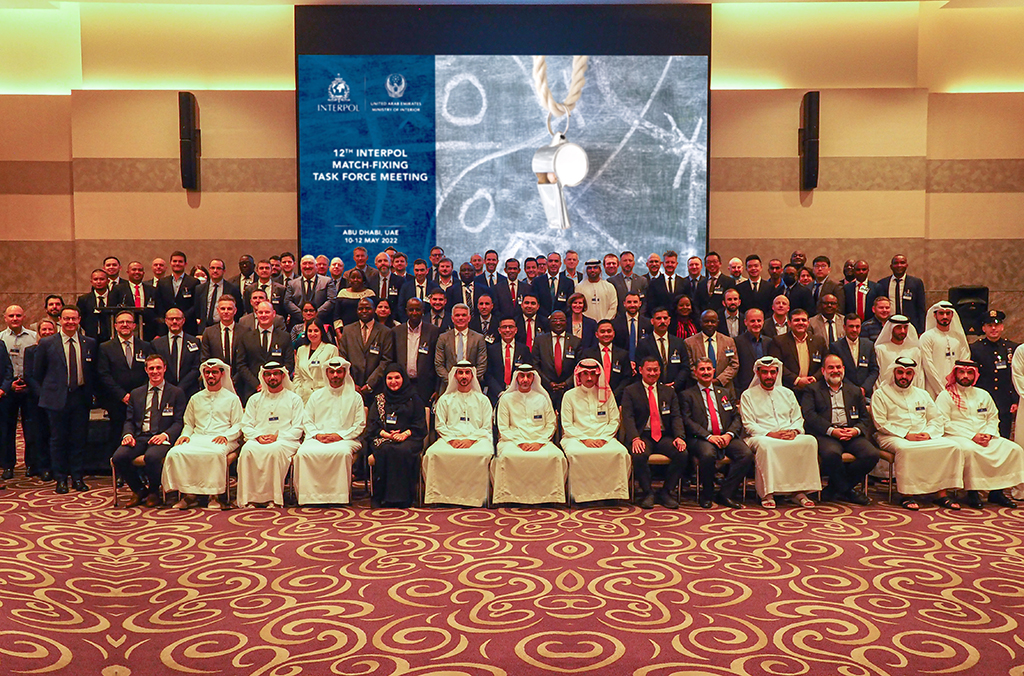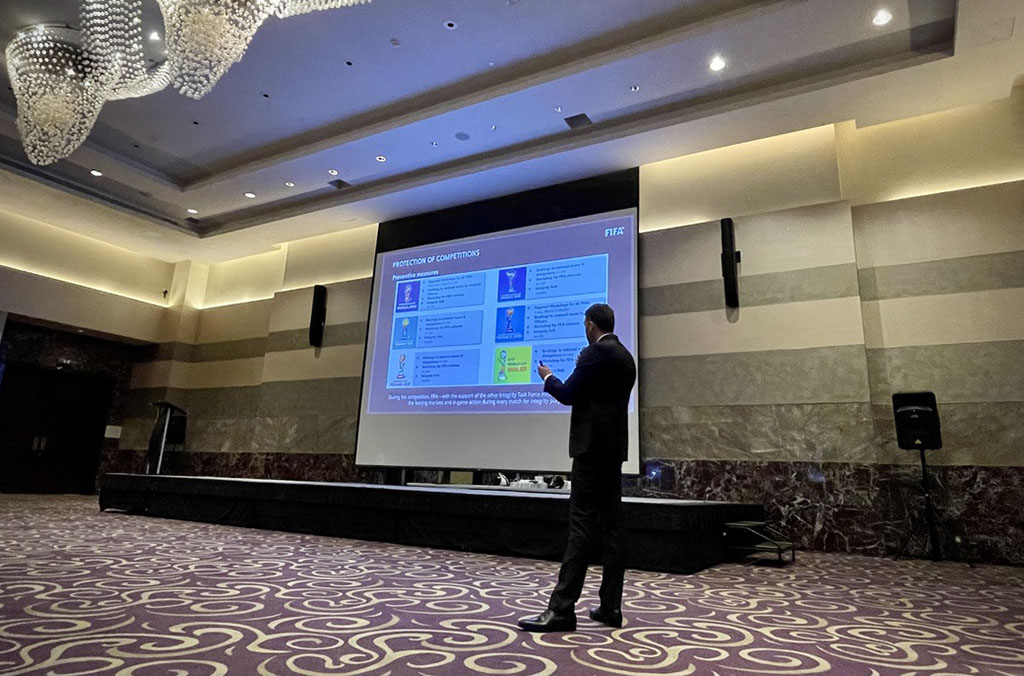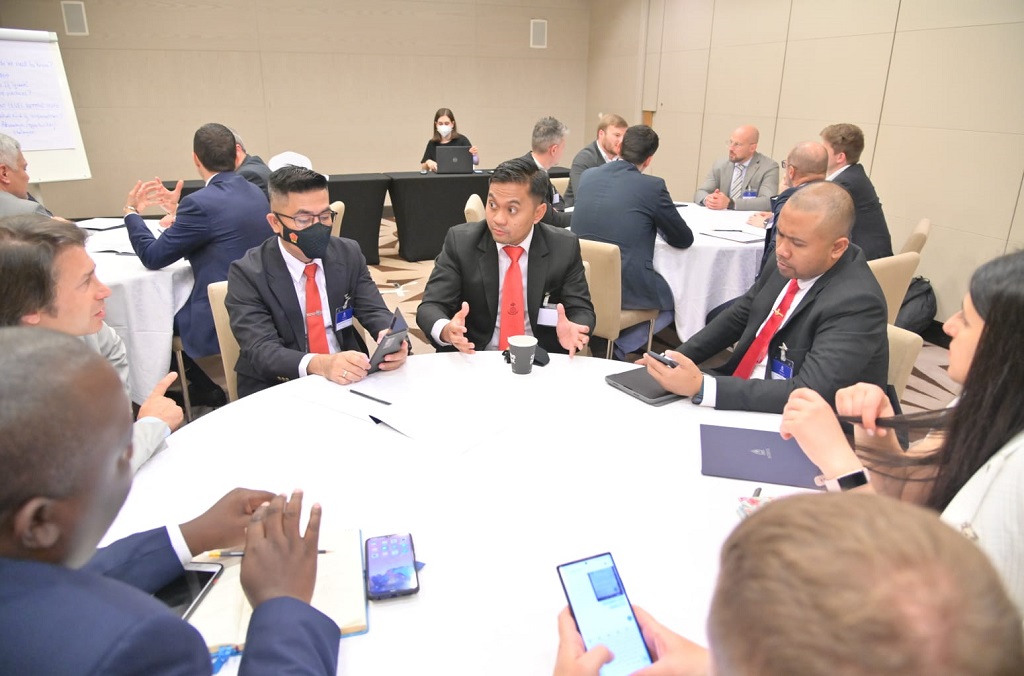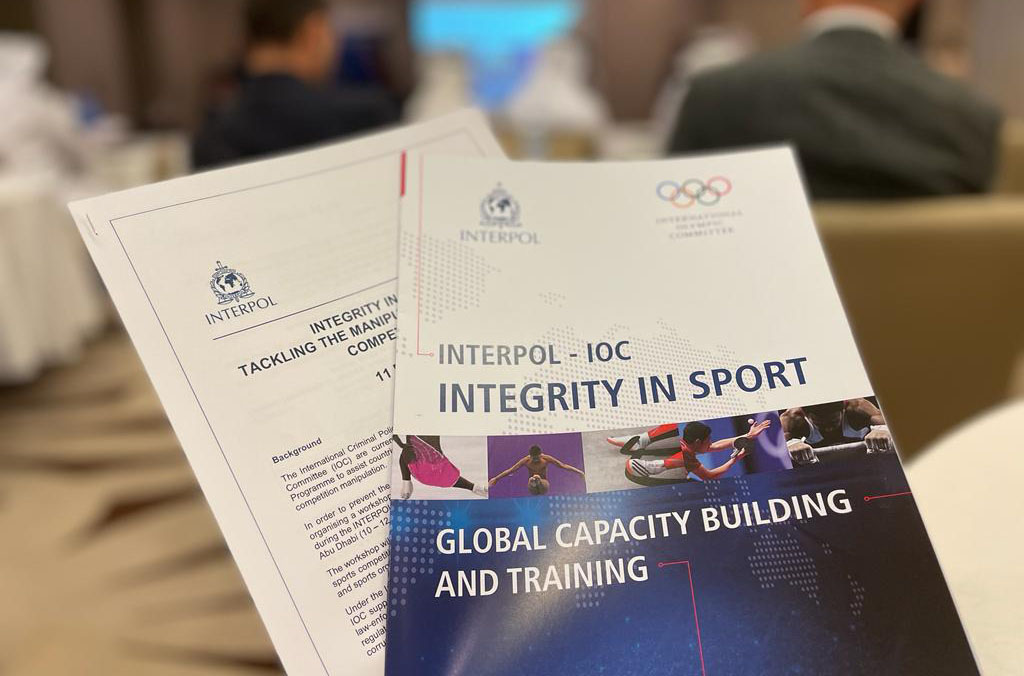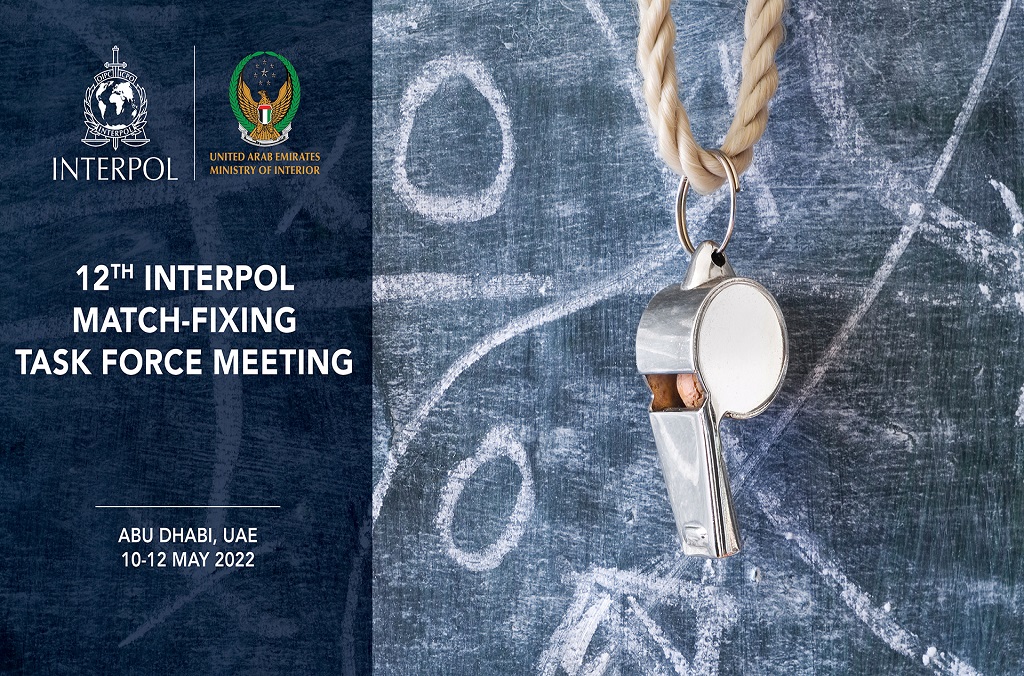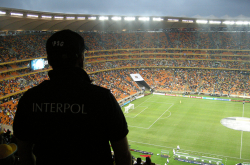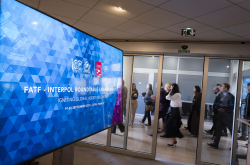ABU DHABI, United Arab Emirates – The 12th meeting of INTERPOL’s Match-Fixing Task Force (IMFTF) has concluded with a call to harmonize global efforts to curb competition manipulation.
The three-day (10-12 May) meeting brought together integrity and intelligence specialists from some 50 countries, representing law enforcement, public authorities, sports federations, anti-doping organizations and betting monitoring services.
It was the first major event held under the banner of INTERPOL’s newly-created Financial Crime and Anti-Corruption Centre (IFCACC), which provides a coordinated global response against the exponential growth in transnational financial crime and corruption.
Discussions focused on mechanisms to boost intelligence sharing and close legislative and institutional gaps, such as the establishment of National Platforms, as outlined in the Macolin Convention, which centralize and analyse information on irregular and suspicious trends.
With criminal organizations increasingly operating across betting and sports markets, participants discussed the emerging uses of technology, big data and social media. They also acknowledged that match-fixers are still very much relying on tried and true methods of manipulation, such as targeting the entourage of athletes and grooming young players, pointing to a continued need for education.
INTERPOL provided an overview on the specific tools available to law enforcement dedicated to data collection on sport corruption (project ETICA) and financial crimes analysis (FINCAF). A number of countries presented recently issued INTERPOL Purple Notices providing information on modus operandi linked to social media, identity theft, ghost and fake matches.
The meeting included a closed-door session for specialized investigators to share case studies, discuss emerging match-fixing tactics and hold multi and bilateral meetings to coordinate active international cases.
Exchanges revealed that while betting intelligence remained important to investigations, other sources of intelligence also needed to be exploited. For example, although doping has traditionally been viewed through a drug-enforcement lens, participants heard that positive doping tests and alerts could be a valuable source of intelligence for integrity investigations, notably on the criminal organizations behind competition manipulation.
INTERPOL and the International Olympic Committee (IOC) held a side event dedicated to stakeholders in the United Arab Emirates, in order to raise awareness, build capacity and enhance national mechanisms to prevent, detect and sanction competition manipulation.
The IMFTF was created in 2011 to support member countries with investigations and law enforcement operations in all sports, and maintain a global network of investigators for the sharing of information, intelligence and best practices. It now includes 100 member units, with more than 150 National Points of Contact worldwide.




